Piolets d'Or Announces the "Significant Ascents" of 2023
This list of 68 climbs is effectively a "long list" used to select nominees of the prestigious alpine award.
Eco-activist and paddleboard adventurer Lizzie Carr inspires a global community of citizen scientists to map plastic pollution in her crisis-fighting app.

In 2016, Lizzie Carr set out to traverse the entire length of England’s waterways on a solo and unsupported paddleboard expedition, a world record. Lizzie loaded all of her food and camping gear onto the front of her board, paddled 10 hours per day and slept in her tent alongside the waterway each night. Throughout the 400-mile journey, which took more than three weeks to complete, Lizzie logged 2000 pieces of plastic on an interactive map, which she later developed into the Plastic Patrol app. Plastic Patrol has evolved organically into a global movement, as more than 100,000 pieces of plastic waste have been logged from 44 countries. (Listen to the full podcast episode here).
In her next world record challenge, Lizzie became the first female in history to paddleboard across the English Channel, a 24-mile journey through choppy waters and dangerous shipping lanes. Then, in 2018, completing a third world record in as many years, Lizzie paddleboarded the entire length of the Hudson River over eight days to raise awareness for the global plastic crisis and to share a way for everyone to get involved.
https://www.youtube.com/watch?v=1N3b7Y_yfRI
How does the Plastic Patrol app work? Just snap a photo of plastic debris that you see while out on a hike, on the water, or even on a walk around your neighborhood. By logging the data, you’re contributing to a global map of plastic pollution that keeps track of bad-acting brands and plastic patterns. Plastic Patrol's #OneForOne campaign asks people to "snap and map" pollution in the Plastic Patrol app, with the worldwide goal to log one million pieces of plastic waste - one for every marine species killed each year by plastic pollution. The app also connects users to local cleanup events, including paddleboarding, yoga, and running meetups, where they can personally take action. Download the Plastic Patrol app.
“Cancer was a catalyst to everything that I went on to do.”
Lizzie’s passion for the environment began unexpectedly with a cancer diagnosis when she was 25 years old. Lizzie took to paddleboarding as a low-impact way to rebuild her strength while recovering from treatment. As she spent more and more time on the water, she noticed an overwhelming amount of plastic pollution in the waterways throughout the UK. She witnessed first-hand that the plastic problem was not in some remote patch of the ocean, but it was right in her own neighborhood. In fact, 80% of marine debris, including plastic, starts from inland sources. Further, the majority of plastic items are only used once before they are thrown away. Consumers might not realize that a plastic bottle that is only used once can take 450 years to biodegrade. Lizzie realized that by inspiring her community to take action, she could become a catalyst for change.

Plastic Patrol is a grassroots movement that relies on a community of people around the world to create an evidence base of brands that aren’t taking ownership of their waste. As each person takes a moment to snap a photo of plastic waste, that data is used to map out areas of pollution hotspots where cleanup events should focus, provide key data about plastic dumping trends, and also help identify the brands and manufacturers responsible. Plastic Patrol has generated the largest databank on plastic waste patterns in UK inland waterways on record, which is analyzed by scientists at the University of Nottingham, and these insights will be communicated to legislators in order to help implement public policies on sustainable packaging and responsible manufacturing practices.
Plastic Patrol puts the power to change corporate environmental practices in your hands. All you have to do to influence corporate reliance on single-use plastics is to “See it, Snap it, and Map it.” Plastic Patrol now has 8,000 volunteers, organizing more than 100 cleanups in the UK alone. In addition to raising awareness through citizen science data collection in the app and coordinating cleanups, Plastic Patrol also partners with businesses to help implement sustainable practices.
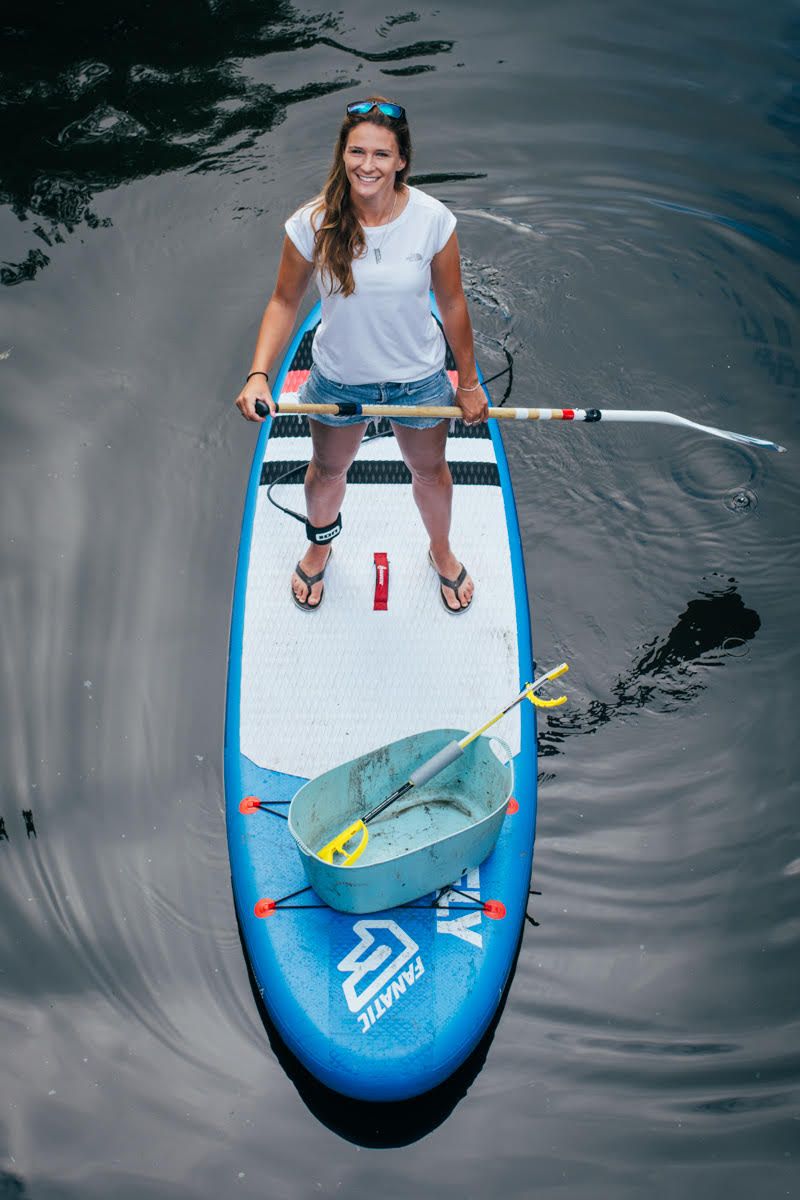
The Outdoor Journal connected with Lizzie to discuss the challenges she faced on her world-first expeditions and Plastic Patrol’s growth in scale from a solo project to a global movement. (Listen to the full conversation here.)
TOJ: Prior to venturing out on expeditions, do you have any sort of coach to help you with the planning or the training?
Lizzie Carr: I had a coach to help me with some of the training in terms of my technique just so that I was efficient with my paddling and I wasn’t wasting energy. We developed a training program together that would suit me. But mostly for training, it was just packing in as many miles as I could on the water. Trying to find ways to replicate some of the conditions I might expect, and building up my muscle memory, and the stamina to do that distance over that period of time.
TOJ: How do you define “unsupported?” How did you pack your own meals and your own sleeping gear?
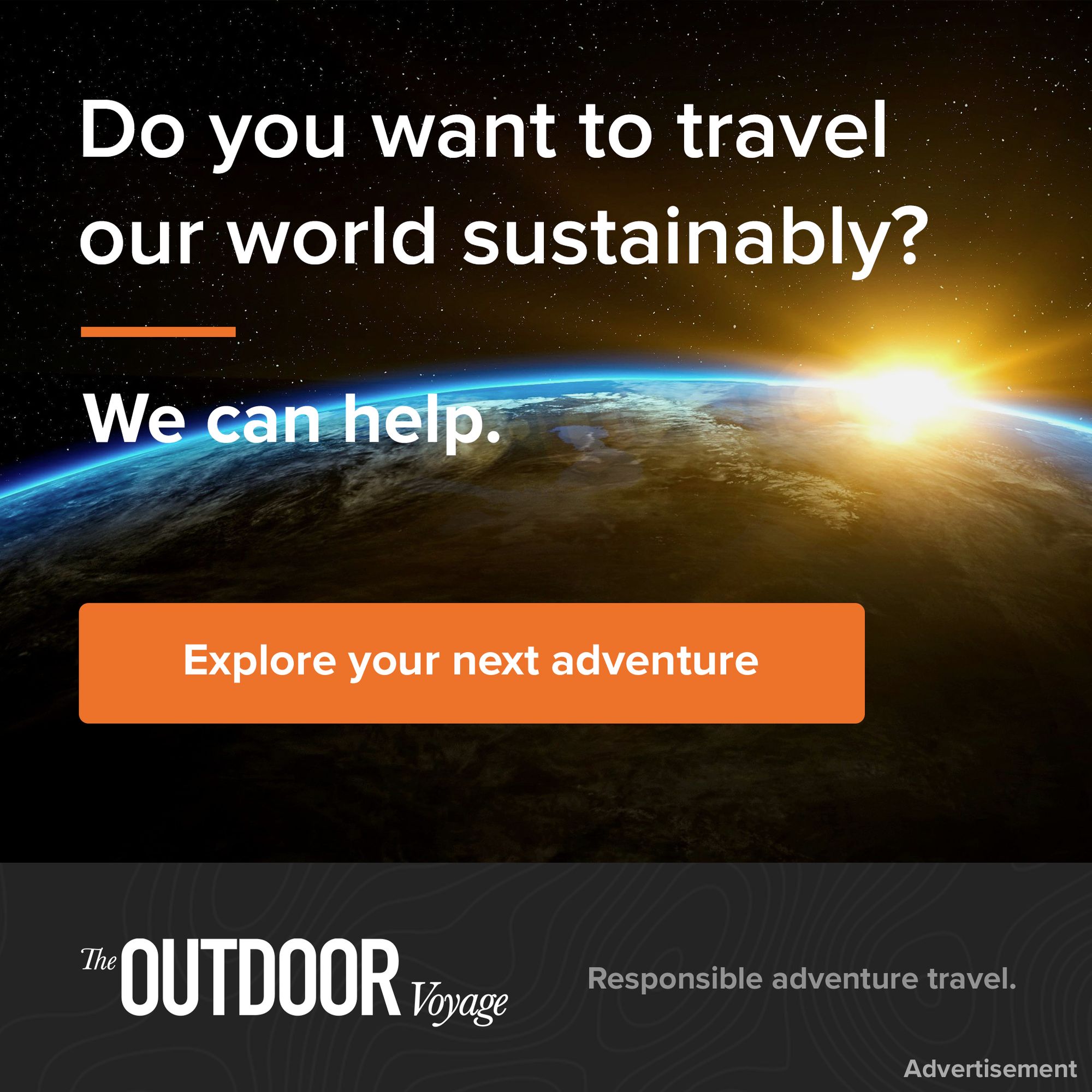
Lizzie Carr: I had all of my equipment--my camping gear, stove, and food--on the front of my paddleboard, so that added an extra level of difficulty because of the additional weight. I had a reusable water bottle that had a filter system on it, so it meant I could drink that the canal river water, which was helpful because I could stay hydrated without adding loads of extra weight to my board.
TOJ: Did you plan ahead on where to spend each night, or were you literally just sleeping in a tent on the side of the river?
Lizzie Carr: Yeah, I just camped up every night on the toe paths or foreshores, sometimes in farmers' fields, just wherever I could. In terms of the planning, I had an idea of where I wanted to end up every day and sometimes it just wasn't possible. I would try and suss out during the day how far I thought I could get in a few hours before dusk and try and get out of any major cities so that I could be in more rural areas where there is more chance of finding somewhere quiet and remote to sleep.
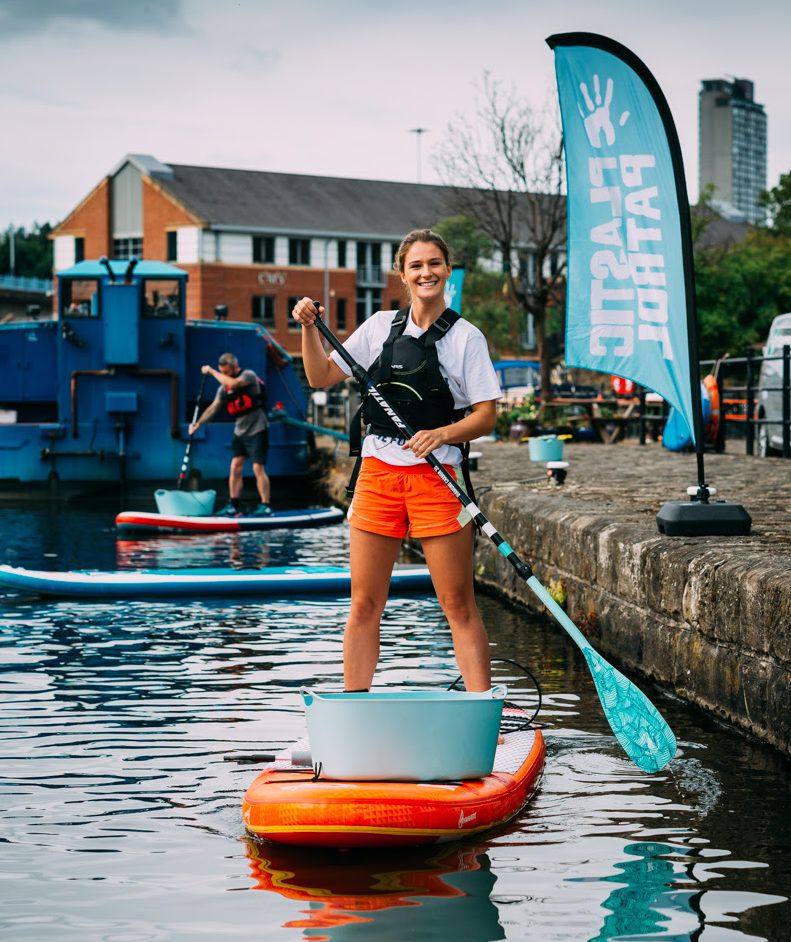
TOJ: What inspired you to set your own challenges in the UK and the States that had never been done before?
Lizzie Carr: The motivation for me came much more from the environmental side of it rather than the adventure side of it. For me, the adventure was a vehicle to be able to highlight the issues that were important to me around plastic pollution.
TOJ: Do you struggle with the feeling of isolation when you're going on a challenge for weeks at a time?
“Everything Plastic Patrol stands for is about community.”
Lizzie Carr: Yeah, I do actually. With paddling, you're doing the same movement 10 or 11 hours a day unsupported, and you're very much just left with yourself and your brain. And often that can take you to some quite dark places, especially if the conditions are against you and things are feeling pretty challenging. The fear can kick in then and you have to find a way to manage that and put reality and perspective back into the situation because there's no one else around you to reassure you. When you're on your own and you're isolated, you run the danger of overthinking, which doesn't help. I think I struggled mostly with the mental side of it on the Hudson River because Hurricane Florence was making its way towards the east coast at the same time. And I was completely unsupported. The width of the river itself is about three and a half miles wide at its widest point. When you think river, you think kind of calm, serene, sedate conditions, whereas this really wasn't, and I think that was probably one of the first challenges I've done where I've really questioned whether or not I will, I will, I would have actually finished it.
TOJ: SUP can be considered a low impact sport. But if you're doing it for 11 hours a day, it's got to take a toll on the body. Are you dealing with injuries like blisters and chronic back pain?
Lizzie Carr: With my health history, the low impact aspect of SUP was one of the reasons I was able to start doing it. One of the beauties of paddling is that it's very much something that you can take at your own pace. If you just want to cruise along the canal or river for a couple of hours, it's low impact, it's good for your core and, and it's accessible to everybody. Whereas you can ramp that up and do long distance endurance. There’s a huge competitive scene now that's growing and growing. So it's one of those sports that you can decide how you want to use it.
But, one of the reasons it was important for me to try and have coaching was because of my technique. I was getting back pain and I needed to make sure that when I was getting fatigued over that many hours a day, my stroke wouldn't change in a way that would compensate for where I'm not actually using the muscles in my back that I should be. Also, I struggle a bit with carpal tunnel syndrome because of obviously holding the paddle and gripping it for so many hours a day through extensive periods of time. I get something called “trigger finger” as well, where your fingers just lock into a position and they take a while to flick back out so you can use them again.
TOJ: Do you think that you would have realized that you had the strength to do world-first challenges if you hadn't gone through the experience with your thyroid illness?
Lizzie Carr: Cancer definitely gave me this new found confidence in a way that if I could physically and mentally overcome something as traumatic and serious as that, then I suppose I could manage the physical and mental aspects of these challenges. I would say that cancer was a catalyst to everything that I went on to do. And it's bizarre how something so traumatic at the time, which was a nightmare basically, would go on to change my life in all the ways that it has done. I don't think I even knew what paddle boarding was when I was first diagnosed. So to look back now on that journey over the last four or five years, it still amazes me.
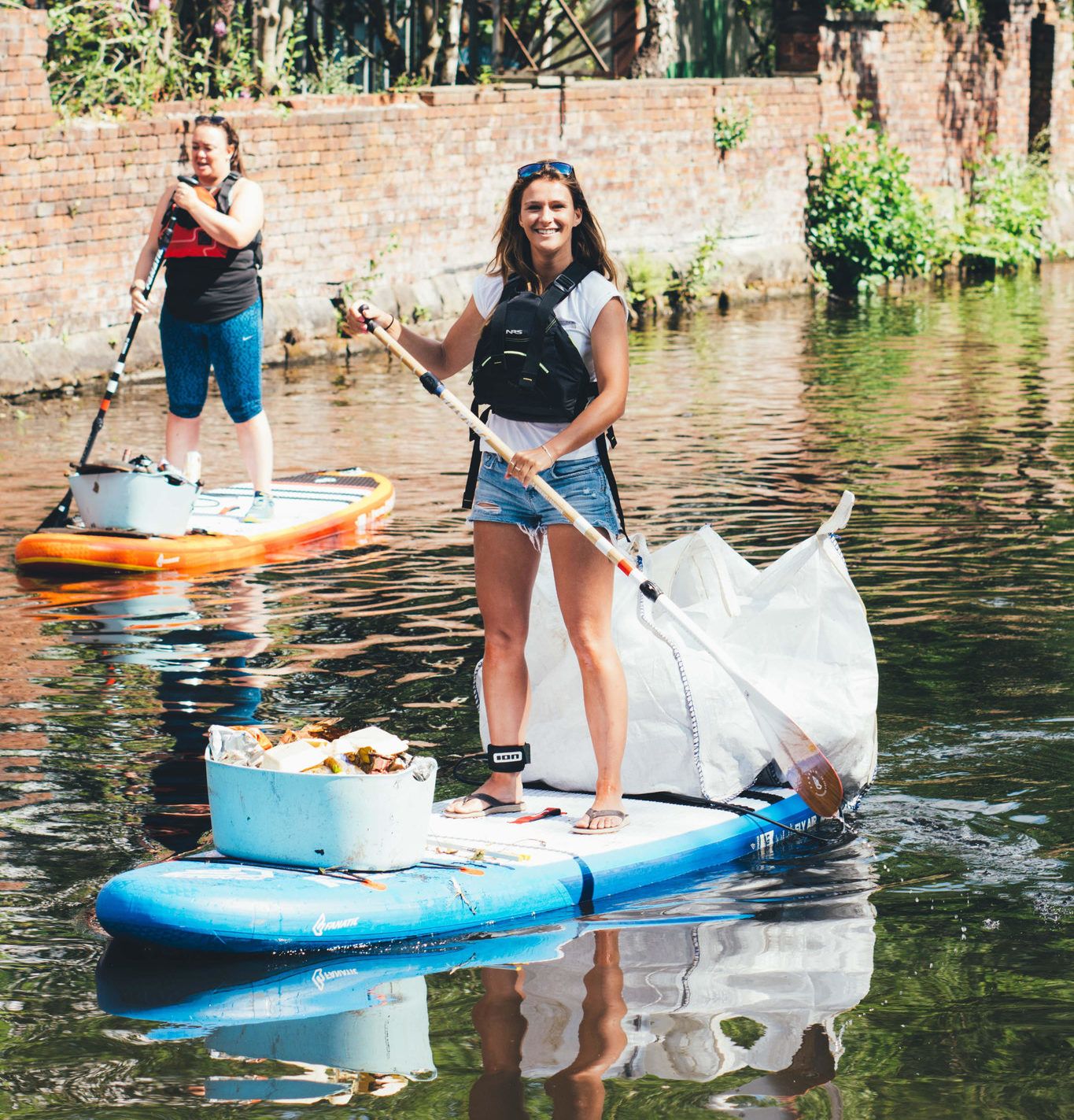
TOJ: As I interview more and more endurance athletes and explorers, I'm noticing patterns of trauma and recovery that result in a positive transformation. For example, Colin O’Brady, who recently traversed Antarctica in a record-breaking expedition, previously suffered through a fire accident that left 25% of his body burned. Your story mirrors his. Looking back on it now, does your experience with cancer almost seem like was a blessing or something that you wouldn't take back?
Lizzie Carr: One Hundred percent! I never thought I would ever view it that way. I always call it my worst nightmare, but also my greatest blessing. If you would have said to me, in five years' time, you’re going to look back on this and find a way to be thankful and grateful for the experience that you had and the learnings that it gave you, I never would have believed that.
TOJ: As you started creating Plastic Patrol, how did you lock into the idea of citizen science? Because that's not really something I've been familiar with, but it makes so much sense when I actually see it in practice through Plastic Patrol.
Lizzie Carr: Plastic Patrol as a movement has evolved organically over the last few years. When I started paddling and I used the Hashtag Plastic Patrol to log everything I found, I never expected it would become what it has become now. It was never necessarily the intention. I just wanted to contribute meaningfully to the issue in some way and encourage other people to do so. In developing the app and the idea of being able to, wherever you are in the world, not just remove plastic, but also identify the types that you're finding, the amount, the location and ultimately the brands that you're finding that has so much power and so much value.
“Nothing like that existed. So I built it myself.”
Especially in the UK, we’ve got huge amounts of awareness around the issue of plastic pollution now. It's very mainstream and lots of people are getting involved in litter-picks around different communities. Actually what we need is to all come together and pull this information that we're gathering into a comprehensive place so that we can really understand where this problem is starting, where responsibility lies, how we can use it to inform public policy, and influence manufacturers and industry to make better decisions. That's why I built the app because I wanted to put the information I was gathering into a reliable tool and nothing like that existed. So I built it myself.
Read next on TOJ: In the US, a lawsuit against the federal government could galvanize climate change policy.
TOJ: Who is the Plastic Control app aimed at? How can people get involved if they are not into paddleboarding?
“We’re building an evidence base to put accountability back in the hands of those responsible.”
Lizzie Carr: I'm doing cleanups all over the UK and we have reps this year running them across Europe too, so people can get involved on the ground in their communities all over the world. The app is designed to be used anywhere you are - up mountains, on the water, or in parks. If you're in nature and you see plastic that shouldn't be there, photograph it, put it in the app and categorize what you found. The slogan that we use for it is “Snap it and Map it.” Or “See it, Snap it, Map it.” And it's making people understand that litter picking is just half the story. If we only litter pick, then we'll be litter picking forever, because nothing's going to change. We've got to force transformation further up the chain. What we're doing is building an evidence base to put accountability back in the hands of those responsible. By doing that, we're able to force change and we're living in a time where social media and digital technology and the devices that fit in our pockets will actually enable us to do that.

TOJ: Our readers at The Outdoor Journal are interested in getting involved with conservation and sustainability. Plastic Patrol is one of the most exciting things I've come across because of its dual benefit. Someone can download the app and go for a walk in their neighborhood and document plastic waste to contribute to the data collecting process side of the app. On top of that, they can log into the app to get connected with social activities near them.
Lizzie Carr: I think there's a lot to be said for the different ways that Plastic Patrol has and will continue to impact people's lives, especially with on the ground community activities. Obviously, people want to feel like they're going out and having new experiences and Plastic Patrol allows them to do that and meet new people in their communities. There's absolutely a low-level benefit for mental health as well by doing that and people's involvement with the kind of social, grassroots aspect. And then also by using the app you have this huge other side of it where people can see individually how they've contributed to a global issue, and what their contribution will end up creating. The scientists that were working with at the University of Nottingham will be reviewing and analyzing all of this data all over the world and identifying trends and patterns and hotspots, all things that, at the governmental level, no one has taken the time to really get a steer on, exactly why this problem exists and how we can truly eradicate it. And this is what the app and allow us to do. Everything needs to go back to data and insight. That's how we learn. That's how we understand--proven success. And that's what we're aiming to do with Plastic Patrol, to create reliable data and insight that can ultimately change the world.
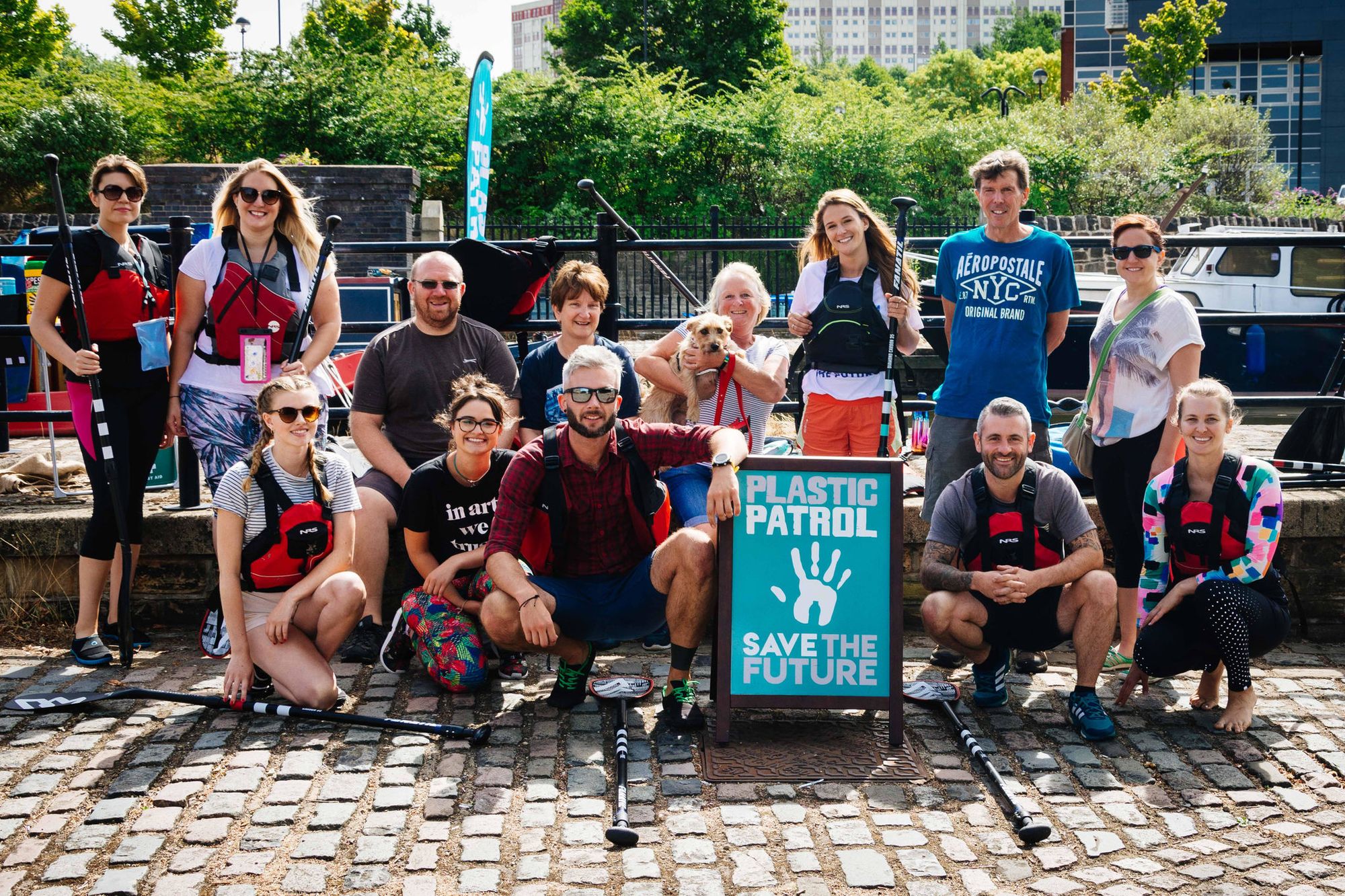
TOJ: As I understand the social influence mechanism of the app, it will make a tangible change by pointing out some of the worst acting brands. With the app’s brand categorization feature, people will become more aware when they're making their consumer choices in the grocery store, and choose brands that aren't those bad actors. Ultimately, market forces dictate that the bad actors will realize this and be forced to make a change.
“The data helps consumers align themselves with brands that are focused on sustainability.”
Lizzie Carr: That's one way of looking at it, certainly. I think it's about working together. The problem that exists, there's very much a blame culture around it. So everyone's pointing fingers - industry, government, and individuals are all blaming each other. But, there’s a responsibility in the role that everyone plays in this and no one is perfect in this situation. And I think that's one thing you have to be fair with. Most people are trying, but no one is perfect. There’s a reflection that needs to be had in all of those three areas. Yes, the data helps consumers make better choices and align themselves with brands that are focused on sustainability. It also helps inform brands and industries where changes that they've adopted in an effort to be more sustainable aren't working, and why they aren't working. The ultimate goal here is to put the general public in a position where they can create enforcement.
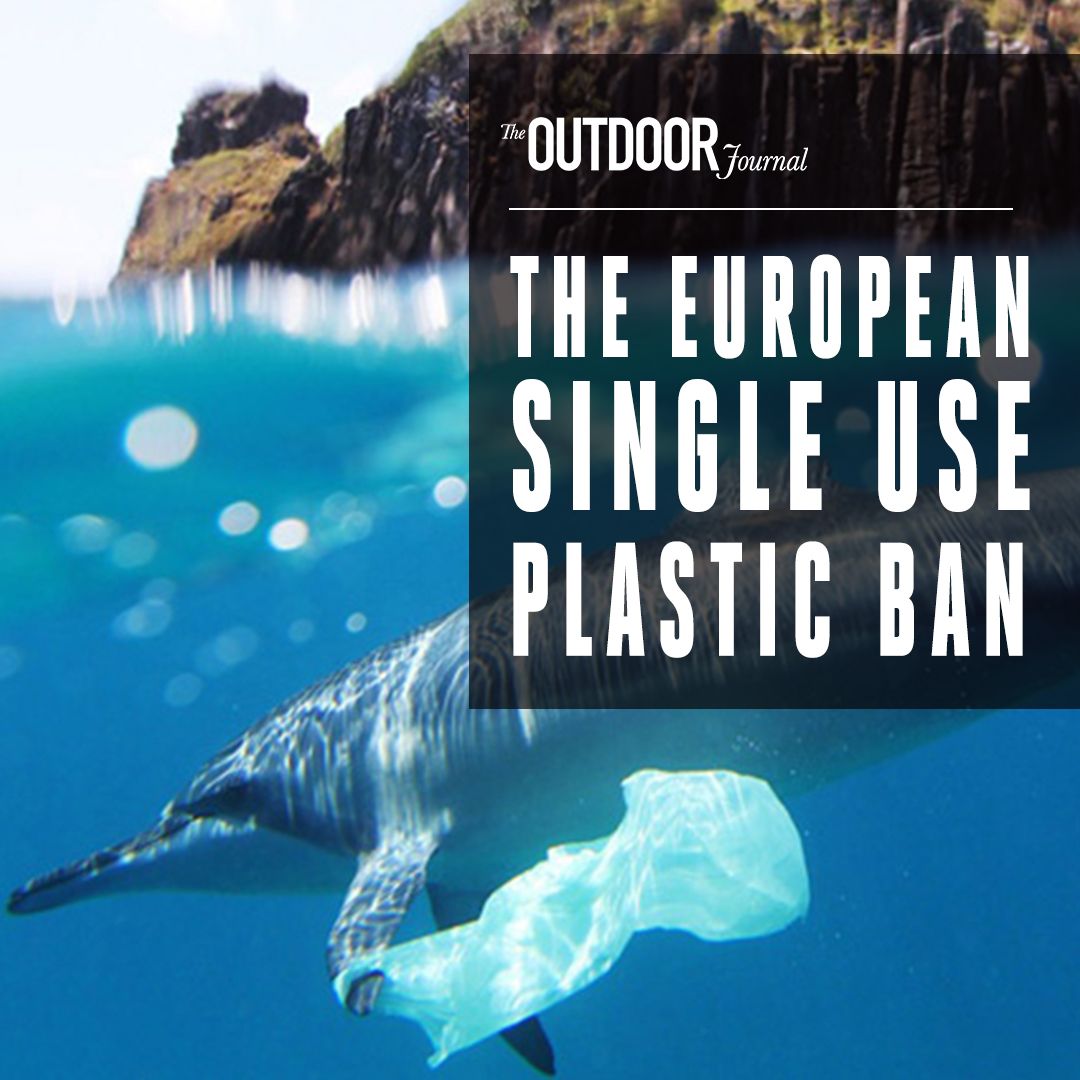
TOJ: Is one small, practical step to answering to the plastic water bottle problem to encourage individual users to use their own reusable bottles?
Lizzie Carr: I think that any material that is single-use, be it plastic, paper or whatever, it comes at an environmental cost. This isn't just about plastic. This issue is about the single-use culture and mindless consumerism and the quantity of it. So ultimately for plastic bottles, I would say yes, of course, you want people to have one bottle that they use time and time and time again. But I think what we need to be careful of is demonizing single-use plastic, but then replacing that single-use material for another one. So a good example of this is plastic straws and replacing them for paper straws--that does still come at an environmental cost and that still has a huge footprint attached to it. So let's just get rid of straws or together. We don't need them.
TOJ: When you see a country like Costa Rica banning single-use plastics and when you see similar bans in Europe, does that make you optimistic for the future?
Lizzie Carr: Yeah, I think all the changes that you can see, and not just necessarily in Costa Rica, but all over the world, these small, marginal gains, we're seeing them appear much more frequently and in many more countries than we were a year or two years ago. It does make me optimistic because that's what we’re fighting for. We’re fighting for the change.
TOJ: Do you believe that small decisions made by one person throughout the day could have an impact on the global scale of climate change?
“The ultimate goal here is to put the general public in a position where they can create enforcement.”
Lizzie Carr: Absolutely. 100%. I think that we should never underestimate the power of our individual choices and decisions. Plastic Patrol, in itself, started out with me literally on my own, paddleboarding around England, photographing everything I saw and sharing it on social media. And that has grown and evolved, through the power of a number of other individuals that really care about this issue, into a global movement with people uploading photos and categorizing photos in the app from 44 countries now around the world. We've logged over a hundred thousand pieces of plastic. We should never underestimate quite how much power we have as individuals to drive change at a high level. The power is literally in our hands.
TOJ: It sounds like you have a really busy summer ahead of you. What are some of the events and activities that you have planned?
“We're integrating wellbeing for yourself and wellbeing for the planet together.”
Lizzie Carr: I'll be doing my paddle boarding cleanups all around the UK. I'm coming over to the States in the beginning of June to do some cleanups on the Hudson in some of the hotspots that I identified when I did the challenge on the Hudson and I'll be screening the film that I made, the Hudson Project, in Manhattan along the river, which is great to be able to go back and see that there's a legacy being put in place where I took Plastic Patrol. The US is one of the world's biggest consumers of single-use plastic. So to be able to cause some kind of disruption to the conversation out there and to spark a bit of debate around the idea of plastic pollution on the Hudson is really important.
https://www.youtube.com/watch?v=OFxUFPsst5g
We've got our reps programs this summer with our instructors across the UK and in different countries as well that will also be hosting paddleboarding cleanups for Plastic Patrol, logging everything that they find on the app. We've also got yoga instructors now offering yoga sessions to the general public that are integrated with cleanups after. The idea now is that we're integrating wellbeing for yourself and wellbeing for the planet together.

TOJ: What is your overarching goal for the rest of the year?
Lizzie Carr: This year we want to log 1 million pieces of plastic in the app - one for every marine species that is killed because of plastic-related issues every year.
TOJ: When you're spending a day on the water, picking up one piece of litter after another, I imagine you go through a range of emotions. On the one hand, it must feel good that you're cleaning up and making a difference, but on the other hand, I’m guessing you might get frustrated or upset to see so much litter?
Lizzie Carr: I think I’ve moved away from frustration because of the app. The app reinforces that this isn't something to be frustrated about because we're collecting evidence and the more I'm contributing to this global map, the more on driving change. I have hope because I know that by doing all of this we are working towards something bigger.
Websites
www.plasticpatrol.co.uk
www.lizzieoutside.co.uk
Facebook
@LizzieOutside
@PlasticPatrolOfficial
Instagram
@lizzie_outside
@Plastic_Patrol
Twitter
@LizzieOutside
@Plastic_Patrol
A booking platform and an online marketplace which only lists good operators, who care for sustainability, the environment and immersive, authentic experiences. All listed prices are agreed directly with the operator, and we promise that 86% of any money spent ends up supporting the local community that you’re visiting. Click the image below to find out more.

2nd best newsletter in the universe